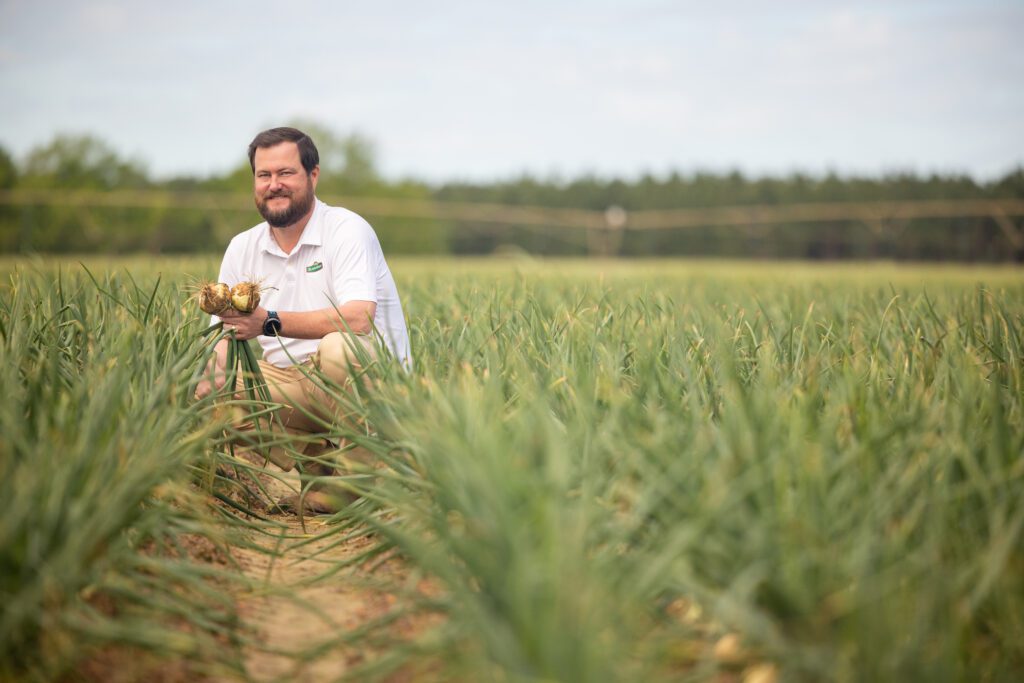

Mar 27, 2024Bland Farms’ sweet success
Long before the family name became synonymous with the iconic Vidalia sweet onion, the Bland family was known for other crops.
The third generation family operation began in 1948 when Raymond Bland started a 50-acre farm with livestock, corn and tomatoes.
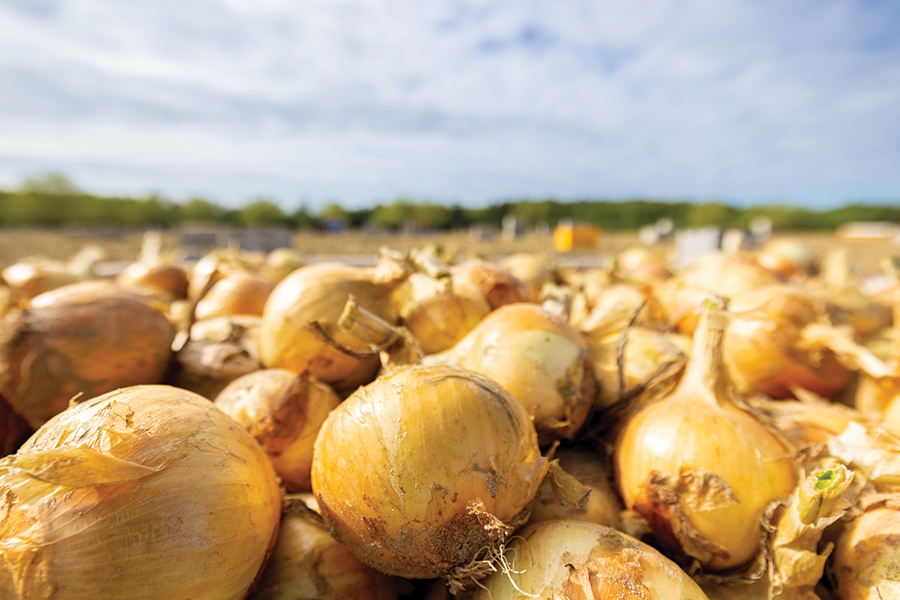

After graduating from high school, son Delbert helped run the farm. In 1982, after a successful season of growing a small plot of sweet onions, the two decided to enter the sweet onion business.
Despite challenges, including disease pressures from excessive rains, adoption of technology helps Bland Farms successfully grow Vidalia sweet onions in southeast Georgia.
Domestically, the Glennville, Georgia, Bland Farms grows and contracts sweet onions on 3,000 acres. When Raymond and Delbert Bland started growing sweet onions, the Georgia crop was sold mostly in the Southeast U.S. Sales and popularity grew after the Vidalia Onion Act of 1986 established Vidalia as a trademarked onion.
Unlike other drier onion growing regions, Georgia’s rains make for more work managing disease. Humidity encourages fungus and bacteria growth, including botrytis, a major onion disease.
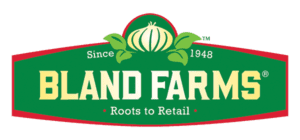

Because Vidalia onions are grown in the winter and harvested in the spring, weeds aren’t typically a problem. The short-day winter onions don’t experience the same problems long-day onions face during the summer growing periods.
Eye on soil health
Tissue analysis is an important part of Bland’s field monitoring. “Soil health is extremely important,” Bland said. “We are continuously analyzing our soil. We have to know what the tissue analysis tells us. We have to know what is in the soil and what is being drawn out. The tissue tells us everything. It really gives us knowledge of the plant.” Bland Farms applies nutrients via fertigation, which allows for more precision.
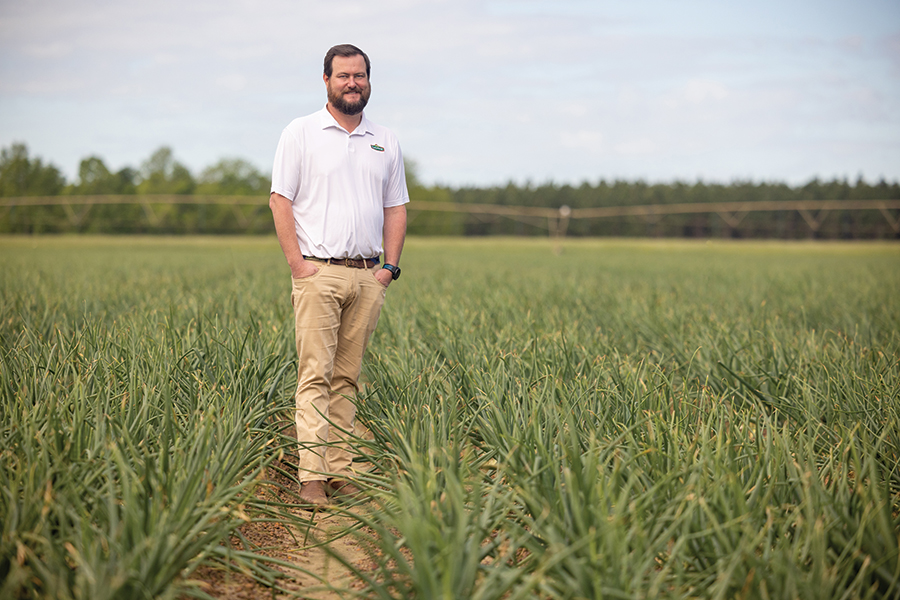

“We are always rotating our crops,” Bland said. “Some crops build up the soil and some crops diminish the soil. So, we only plant crops behind onions and sweet potatoes that replenish the nutrients in the soil.” Cover crops, usually grains including wheat and rye, help promote soil health.
“We’ve been paying attention to the soil since the very beginning,” Bland said. “Cover crops help build the soil up. If you’re a farmer, you better be paying attention to the soil or you won’t be in business very long..”
Conservation tilling reduces carbon dioxide emissions, decreases erosion and lessens runoff. Over the past seven years, Bland Farms has gone from 50 gas forklifts to 15 electric forklifts in the packhouse and storage facilities, reducing emissions and fuel use.
Tech advantage
A longtime adopter of technology, Bland Farms uses precision farming for increased efficiencies with GPS guidance for precise applications.
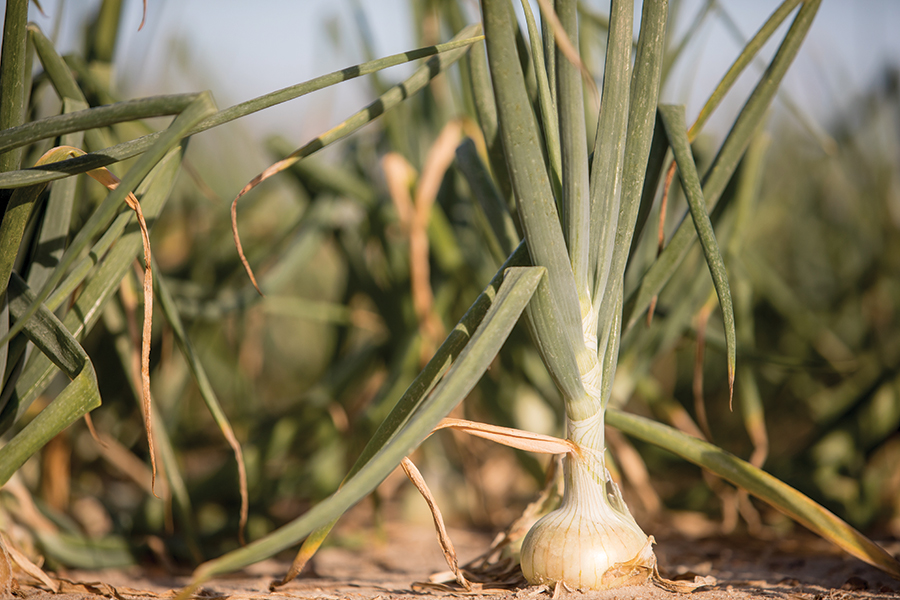

More changes have occurred in the packing shed than in the fields. In 1990, controlled-atmosphere storage rooms extended the availability of Vidalia onions from two months to four months. A new packing shed in 2023 makes onion processing more efficient.
The change required rearranging planning and harvest schedules to finish in the fields earlier and transport more onions to the packing operation. “It’s one thing to have a tractor drive itself, but it’s another thing to have a computer decide if an onion is good or bad — and that’s the game changer,” Bland said. A good manager should use all the available technological tools.
“Common sense would tell you what’s necessary and what isn’t,” he said. “It’s a mixture. Everything they come out with is not for you. It takes time to develop and go through all the riffraff to decide exactly what you need to use and what you’re going to use and what doesn’t apply to you. You have to stay up to date with technology or you’re going to get left behind.” Growers must remain ahead of changes.
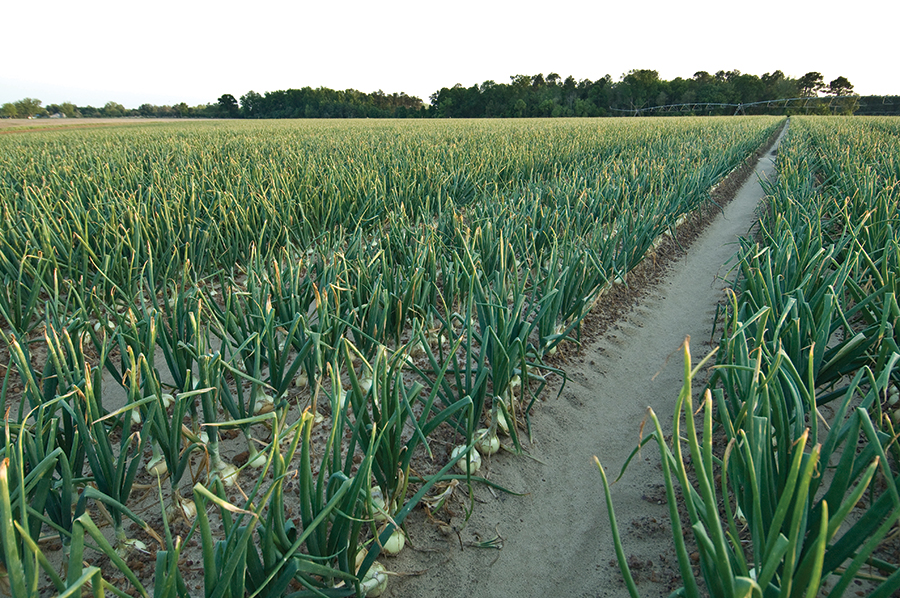

“You can’t be complacent with where you are at any time,” Bland said. “You have to continuously be looking for an advantage and looking for a new opportunity to do it better.”
With rising input costs, the challenges of growing are becoming larger. “We have to continually change because there are so many regulations and rules out there now,” he said. “The EPA is always taking something away, and it’s a continuous challenge. We’re always coming up with alternatives for what they might ban.”
Though Bland Farms has long grown sweet potatoes, in 2021 it partnered with other growers to offer them a little earlier than most, and helps the company meet growing demand. Delbert Bland has passed the lessons learned from his father to his sons, Landis, sales manager, and Troy, CEO and 2023 Fruit + Vegetable 40 Under 40 honoree.
Other family members involved in the farm include Delbert’s wife, Sandra, director of sales and marketing and president of Vidalia Brands, Bland Farms’ processing division; Landis Bland’s wife Leah; and Troy Bland’s wife Mary Katelyn, who works in marketing.
“We are humbled to be here,” Delbert Bland said. “To be able to operate and maintain our company for over 75 years is a major undertaking. Being a part of the industry for such a long time demonstrates our ability to adapt to changing agricultural landscapes.”
– Doug Ohlemeier, assistant editor
Top photo: Troy Bland, CEO. A longtime embracer of technologies, Bland Farms uses GPS and other precision tools to increase efficiencies.














